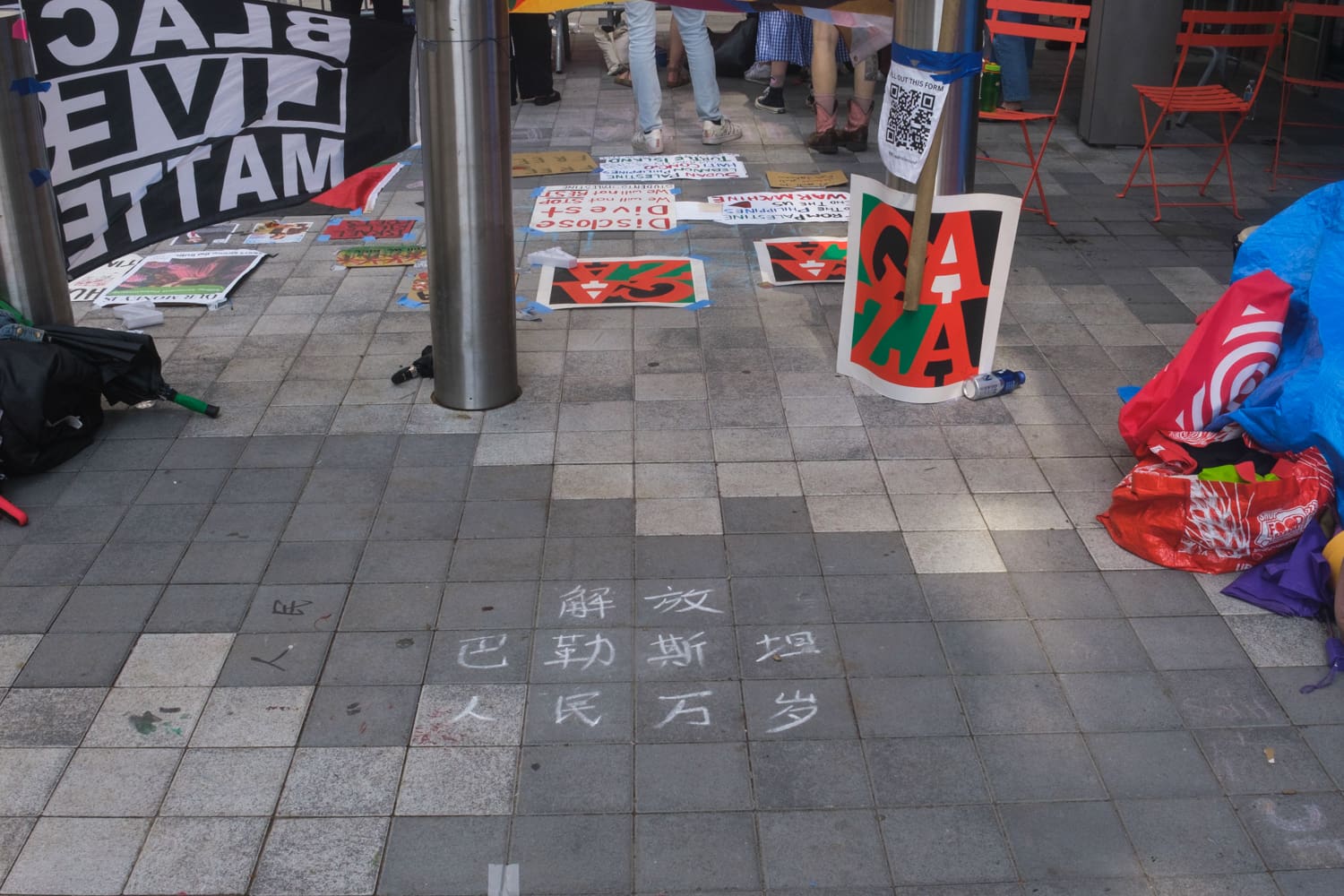By Racqueal Legerwood, AIUSA China Research and Advocacy Fellow
June 4 marked the 35th anniversary of the Tiananmen Square protests and massacre. Congress commemorated the anniversary with a hearing and introduced a resolution calling for an end to censorship around the event, the release of political prisoners, resumption of vigils in Hong Kong, and an end to transnational repression efforts by the CCP. These are important actions by the United States to advocate for accountability for atrocities. However, the repressive domestic response to recent protests in the United States from administrators, law enforcement, and lawmakers undermines the government’s credibility in safeguarding rights to free expression, association, and peaceful assembly.
Overseas Chinese students are making this connection. Student groups from across the Sinophone diaspora have expressed solidarity with the Palestinian solidarity encampments, sharing why it is important for them to exercise their rights while studying abroad. U.S. lawmakers and administrations have supported and called for respecting students’ rights in China during the spring protests of 1989, the 2019 Hong Kong mass protests, and the most recent 2022 “white paper” protests. Conversely, lawmakers today have called for students’ visas to be revoked for their engagement in Palestinian solidarity protests – threatening rhetoric that has deterred some overseas Chinese students from exercising their right to free expression.
In May, Amnesty International published a report assessing the impacts of transnational repression (TNR) at the hands of the Chinese government against overseas Chinese students, including in the United States, some of which occurred because of student’s engagement in commemorating the Tiananmen June 4th anniversary. The impact of TNR was also highlighted at the June 4th hearing by a Columbia student who testified under the alias “Karin.” Recalling her school’s response to reporting physical assault at a “white paper” vigil, “no action was taken aside from the suggestion to seek mental health support. Not even a campus safety alert.” Karin shared, “Exposure to freedom made us free. But if these brilliant minds cannot even think and speak freely on American campuses, on American soil, then it will be much more difficult for a movement like ‘white paper’ to be sparked again.”
Similarly, Amnesty’s report revealed a profound lack of trust amongst students in their university administration’s ability to adequately respond to TNR incidents. Efforts to build that trust is undermined when administrators call for law enforcement to disperse peaceful protests or when faculty themselves “monitor” students for law enforcement. Rather than using their authority to escalate administrators’ calls with federal law enforcement and summon university officials to testify on “Stopping Antisemitic College Chaos,” lawmakers should be encouraging administrators to respect and protect the rights of students.
Current repressive responses to protests on U.S. campuses cannot be compared to the severity of the crackdown and continued reprisals against the Tiananmen students, activists, their families, or even those that simply dare to remember. However, U.S. actions now on students’ rights fundamentally shape its credibility to stand with victims of violations by Chinese authorities. Now is an opportunity for the U.S. to demonstrate to the world stage what safeguarding those rights truly means.

